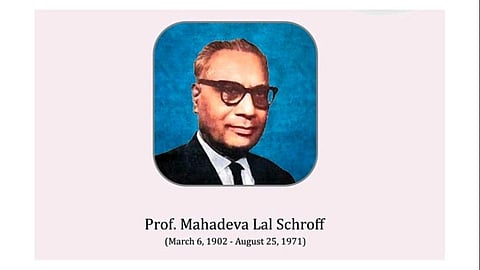Mahadeva Lal Schroff married Prabha Basil in 1931, with whom he shared over two decades of companionship until her passing in 1953 after a prolonged illness. Her death was a personal setback, but Schroff continued to balance his family responsibilities with his academic and professional pursuits. Known for his discipline and humility, he maintained close ties with his students and colleagues, who regarded him as both a mentor and a father figure.¹,²
Despite facing health challenges later in life, including a severe heart attack in 1969, Schroff demonstrated remarkable resilience. Instead of withdrawing from public and academic life, he continued writing, teaching, and guiding pharmacy organizations with the same vigor that defined his career. His dedication to pharmacy education remained undiminished, reflecting his lifelong belief that nation-building could only be achieved through knowledge, service, and institutional development.¹,³
Even in his final years, Schroff was actively engaged in expanding pharmacy education across India. He provided guidance to emerging institutions, mentored younger educators, and continued to write on pharmacy and its history. On August 25, 1971, he suffered a fatal cardiac arrest while working, a testament to his unyielding commitment to his mission. His passing marked the end of an era but left behind a towering legacy that continues to inspire generations of pharmacists and educators.²,³,⁵


